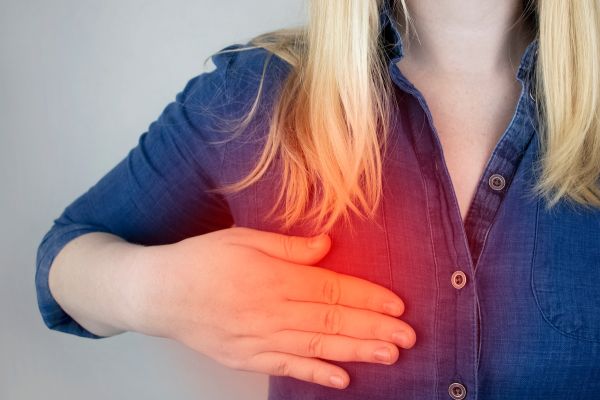You may know someone who doesn’t wear deodorant or antiperspirant due to fear of an increased breast cancer risk. Are their concerns supported by scientific data? According to researchers, the answer is no.
The infamous breast cancer/antiperspirant myth began on the Internet in the late 1990s as a viral email followed by a series of articles. The messages claimed that underarm products contain harmful chemicals, like the aluminum in antiperspirants, which could potentially be absorbed by the skin. The rumors suggest shaving with a razor blade causes tiny underarm nicks that allow the substances to enter lymph nodes under the arm. The body is not able to get rid of the chemicals due to the sweat-prevention qualities of antiperspirants. The cells are then said to mutate into cancer because of the high toxin build-up.
However, in reality these warnings are unfounded. In addition to multiple studies refuting the myth (see below), lymph nodes are not connected to sweat glands. Furthermore, there is no evidence that our skin absorbs a significant amount of aluminum from antiperspirants and it’s unlikely that a small cut in the skin would allow a major source of carcinogens to enter the body and reach breast cells.
What's Your Breast Cancer Risk?
Fill out our breast cancer risk assessment and learn more about your risk factors for breast cancer.
View FormIn the last few decades, numerous studies have explored a possible connection between underarm products and breast cancer prevalence. A 2002 study looked at 813 women with breast cancer and 793 women with no history of breast cancer. The results did not show an increased breast cancer rate for women who reported using underarm antiperspirants/deodorant or for women who applied the product within one hour after shaving using a razor blade. In 2006, a smaller scale study supported the original findings, and in 2016, a systematic review also concluded that there is no link between antiperspirant and increased breast cancer risk. In fact, the results indicated that antiperspirant use was protective, but the review was based on only two studies.
The key takeaway is there’s absolutely no conclusive scientific evidence that antiperspirants or deodorant cause breast cancer. Researchers at the National Cancer Institute, the American Cancer Society and the U.S. Food and Drug Administration (FDA) all emphasize a lack of any conclusive evidence supporting the rumored link.
However, there are many ways to reduce your breast cancer risk and cancer risk in general. Quitting smoking, practicing healthy habits, maintaining a nutritious diet, living an active lifestyle and more are all significant ways to reduce your chances of developing the disease. You can also educate yourself on what factors do increase your risk of developing breast cancer.

